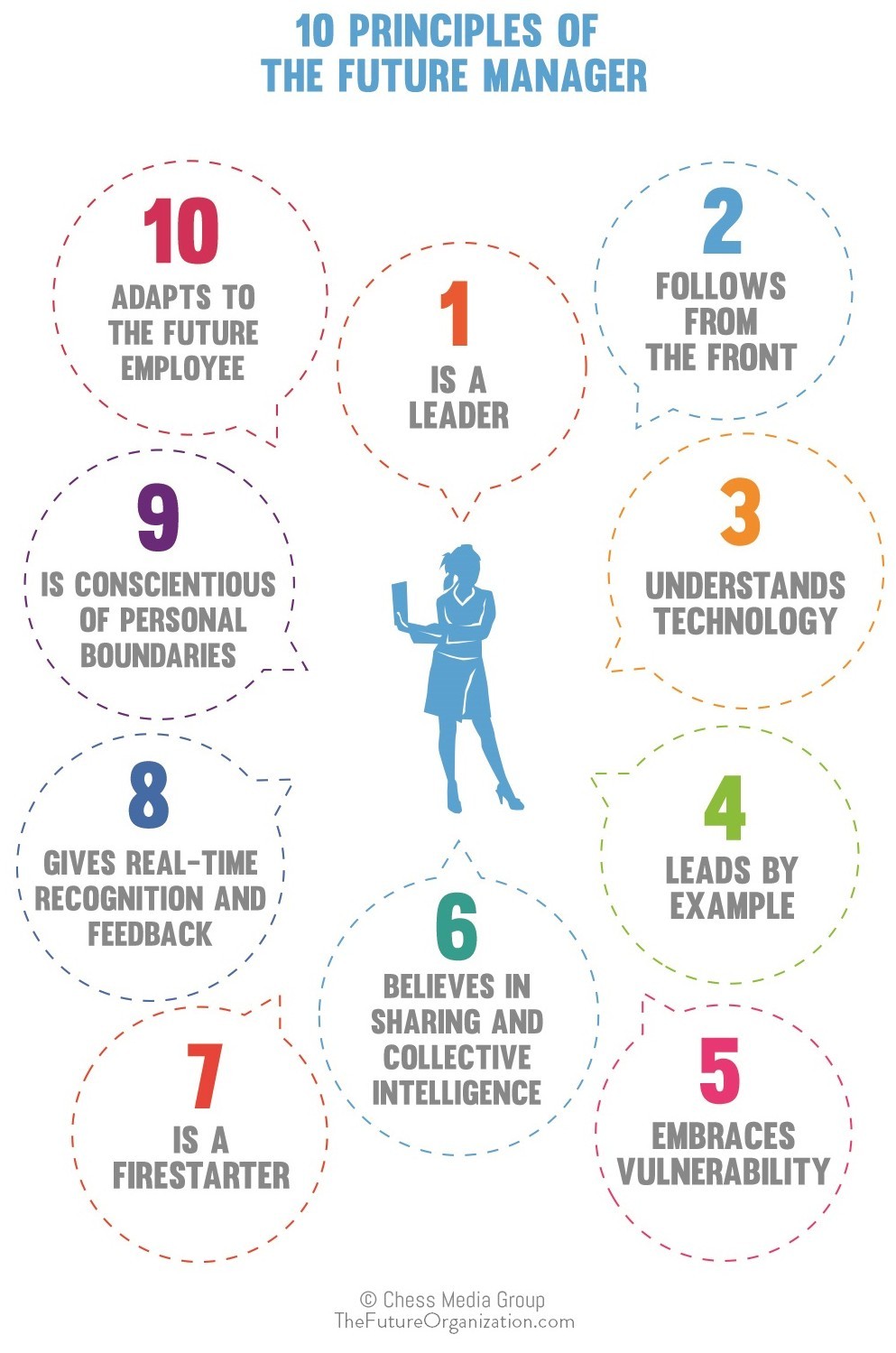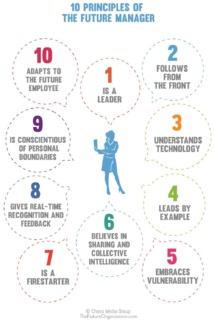Thestrategist.media – 27 April 2015 – Jacob Morgan, a contributor of Forbes, writes about ten principles that a manager need to follow. The said concept is expressed in an article, titled “the 10 Principles of The Future Manager”, wherein Morgan points out that with changing time, the managers too have to change their of working along with the changing staff members. He mentions ten such points that a manger needs to imbibe in himself to become a successful leader of tomorrow.
A manager needs to be a leader:
Firstly, the established norm of a manger, being a dictator and a leader, being identified with a visionary, needs to be changed. The long drawn distinction needs to be erased as with the forward moving trend “a manager MUST be a leader”, whereby earning “followers” instead of commanding “respect”. The position of a true manager is earned so that the said chair isn’t occupied by the best person who “bring(s) in the most money”.
A manager should pave the path for his followers:
The manager should be capable of removing “obstacles from the paths of employees” whereby helping the growth of the subordinates rather than making them “serve” him. This way, the futuristic manage would “follow from the front” by paving the way in which his team members can walk.
A manager must “keep a good pulse on technology”:
As technologies are becoming an inevitable part of our lifestyle, it increasingly becoming important for the manager to “grasp” the said subject so as to take a wise decision on which technology would suit the best for the respective organization. Moreover, technologies are changing to become better; therefore the manager should also be able to identify technologies that might come out “in the near future” whereby any strategic visionary steps can be planed.
A manager, himself needs to be an example:
Manager should not only delegate and order around while expecting others to follow him, for only by demonstrating can a manager lead successfully. The subordinates are there “on the front line” to “help drive” the change. As per Morgan:
A manager needs to be a leader:
Firstly, the established norm of a manger, being a dictator and a leader, being identified with a visionary, needs to be changed. The long drawn distinction needs to be erased as with the forward moving trend “a manager MUST be a leader”, whereby earning “followers” instead of commanding “respect”. The position of a true manager is earned so that the said chair isn’t occupied by the best person who “bring(s) in the most money”.
A manager should pave the path for his followers:
The manager should be capable of removing “obstacles from the paths of employees” whereby helping the growth of the subordinates rather than making them “serve” him. This way, the futuristic manage would “follow from the front” by paving the way in which his team members can walk.
A manager must “keep a good pulse on technology”:
As technologies are becoming an inevitable part of our lifestyle, it increasingly becoming important for the manager to “grasp” the said subject so as to take a wise decision on which technology would suit the best for the respective organization. Moreover, technologies are changing to become better; therefore the manager should also be able to identify technologies that might come out “in the near future” whereby any strategic visionary steps can be planed.
A manager, himself needs to be an example:
Manager should not only delegate and order around while expecting others to follow him, for only by demonstrating can a manager lead successfully. The subordinates are there “on the front line” to “help drive” the change. As per Morgan:
“A manager must be the first person to demonstrate a new behavior, to support a relevant technology, or to embrace a new concept.”
A manager creates a comfortable work-environment:
Manager should allow his team-members to voice their “opinions” even if they are contradictory to his ideas. In order to create a friendly working environment he needs to ask for help when required and admit his mistakes for when one embraces “vulnerability” which would lead to “innovation”.
A manager promotes ‘collective intelligence’:
As the saying goes that “many hands make the work light”, a successful manger should encourage sharing of information to form a “collective intelligence” whereby he will send the message that he may not know everything but he will explore every option along with his subordinates.
A manger initiates new ideas:
The spark burst of ideas should begin from the manager; therefore he needs to be proactive in experimenting, taking up challenges to break conventions. In Jacob Morgan’s language:
“Managers SHOULD be fire starters...”
A manager gives real-time ‘feedback’:
Moreover, a manager’s focus should be on providing “real time feedback and recognition” with the help of collaborative platforms and technologies. In fact, annual reviews don’t hold as much weight as periodical “check-ins” due to the long gap between the work done and the reviews.
A manager respects ‘personal-boundaries’:
In age of Infobahn when employees can be reached from anywhere in the world, the manager should exploit the technology, instead he should respect the personal boundaries of his employees. Consequently, he needs to take judgement call before befriending an employee on ‘social network’, awarding a project during his vacation or fixing up appointment times outside working hours.
A manager adapts to new changes:
Along with the changing time the manager should be able to break free from the shackles of “old way of thinking”. He needs to be ‘open-minded’, accepting, accommodating towards changes that the employees should to bring about in their working style, routine or methods.
References:
http://www.forbes.com/sites/jacobmorgan/2014/11/20/the-10-principles-of-the-future-manager/



















